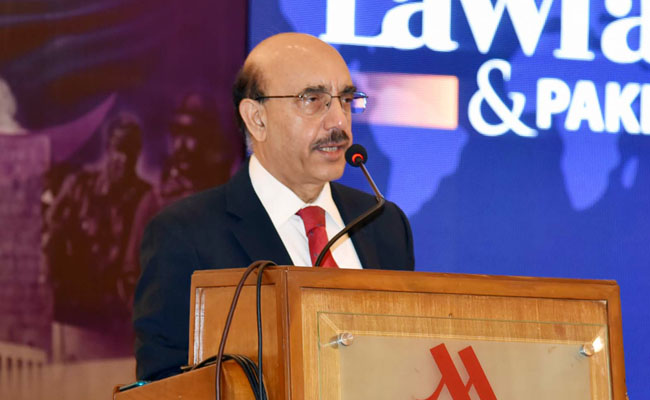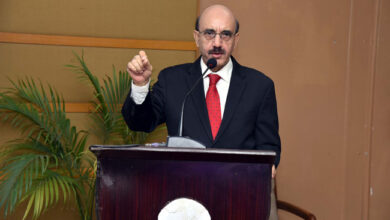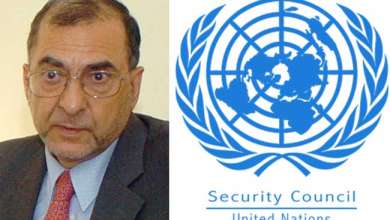AJK President calls for producing professionals to meet cybersecurity challenges

UAJK to launch innovative programs like artificial intelligence, data science, bioinformatics, cybersecurity, VC Dr Kaleem
MUZAFFARABAD, July 13: President Azad Jammu and Kashmir, Sardar Masood Khan has urged AJK universities to produce cybersecurity leaders and professionals to combat rising cybersecurity risks.
He made these remarks while addressing at the closing ceremony of Foundation Level Cyber Security Training (RH-124) organized by the International School of Cyber Security and Mature Resource Global Technologies in collaboration with the Computer Science and Information Technology Department of the University of Azad Jammu Kashmir (UAJK).
The ceremony held at the Auditorium of the university’s King Abdullah Campus, Chattar Klass was also addressed by Vice-Chancellor Professor Dr Muhammad Kaleem Abbasi, Secretary Information and IT of the AJK Government, Ms Midhat Shahzad, Director General, Pakistan Telecommunication Authority (PTA) Cyber Wing, Dr Mukaram Khan, Director General IT Board, AJK, Dr Khalid Rafiq, Director International School of Cyber Security, Nazir Ahmed, and Head of Department of Computer Science and IT, Dr Rabia Riaz.
Addressing directly to the management of the International School of Cyber Security, the President said we invite you to use Azad Kashmir as an incubation lab and then you can enhance and refine your products. We can do wonders; we can do miracles for you and can contribute to Pakistan’s cybersecurity. He said it is not just the department of computer science that should be getting involved in the process but all departments should get involved directly or indirectly, whether they teaching economics, biotechnology, natural sciences, or even social sciences because there is a linkage between what is economists and social scientists are doing and what is happening in the field of cybersecurity.
Sharing his thoughts about emerging threats in cybersecurity, he said cyber-attacks are becoming more frequent and malicious, these threats include private access attempts and exploitation software, hacking phishing, ransomware, malware, web application attacks, or network penetration are happening right now with us as individuals, communities, and as a nation. These threats, he warned are eroding our national strength.
He said every one of us should prepare himself/herself to contribute to the country and nation by fighting back. We are all at the mercy of these technologies and most of our population, our commercial entities, and our government departments are vulnerable and need to be protected by developing our own cybersecurity infrastructure and eco-system not only for Pakistan and AJK but for the entire Muslim world.
Speaking on the occasion, Vice-Chancellor of The University of Azad Jammu and Kashmir (UAJK) said that the university is going to start some new and innovative programs in the Department of Computer Science and Information Technology that including artificial intelligence, data science, bioinformatics, and cybersecurity.
He said that information and communication technology (ICT) has an impact on almost every aspect of our lives – from working to socializing, learning to playing. The digital age has transformed the way young people communicate, network, seek help, access information, and learn.
The University of Azad Jammu and Kashmir and its, IT is fully capable to provide all the relevant training and workshops to conduct online classes, online exams as well as holding the online meetings of the Academic Council. The necessary infrastructure has been developed and after the capacity building of the relevant staff, the system is moving forward without any major difficulty. Currently, over 400 permanent, contractual and visiting faculty members and 9000+ students are using this online system.
Dr Kaleem Abbasi said that the Department of Computer Science and Information Technology of the University has a very qualified and equipped faculty comprising of 13 full-time Ph.D. faculty members, successfully running 4 years BS, 2 years MCS as well as MPhil and Ph.D. programs.





